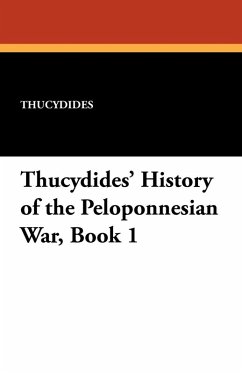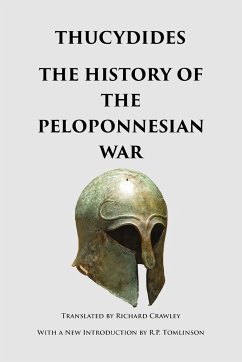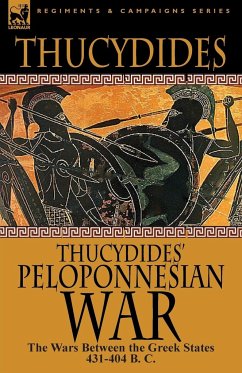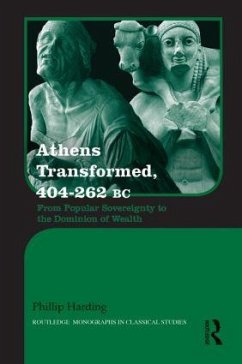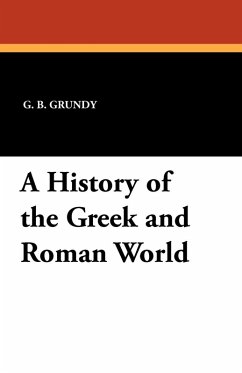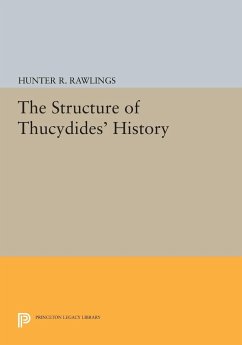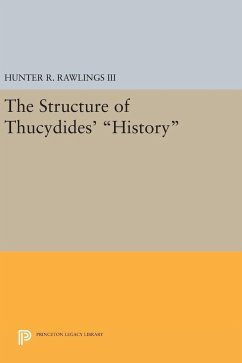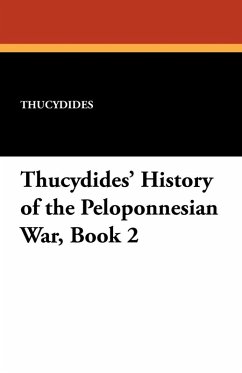
Thucydides' History of the Peloponnesian War, Book 2
Versandkostenfrei!
Versandfertig in 1-2 Wochen
20,99 €
inkl. MwSt.

PAYBACK Punkte
10 °P sammeln!
In Book 2 of Thucydides' History of the Peloponnesian War, the narrative covers the early years of the conflict between Athens and Sparta. This section includes the famous Funeral Oration by Pericles, which extols Athenian democracy and valor, followed by the devastating plague that strikes Athens. Thucydides' detailed account offers insight into the complexities of war, leadership, and human suffering during this pivotal historical period. Thucydides (c. 460-395 BCE) was a Greek historian dubbed the father of "scientific history" because of his strict standards of evidence-gathering and analy...
In Book 2 of Thucydides' History of the Peloponnesian War, the narrative covers the early years of the conflict between Athens and Sparta. This section includes the famous Funeral Oration by Pericles, which extols Athenian democracy and valor, followed by the devastating plague that strikes Athens. Thucydides' detailed account offers insight into the complexities of war, leadership, and human suffering during this pivotal historical period. Thucydides (c. 460-395 BCE) was a Greek historian dubbed the father of "scientific history" because of his strict standards of evidence-gathering and analysis of cause and effect without reference to intervention by the gods. His History of the Peloponnesian War recounts the 5th century BC war between Sparta and Athens to the year 411 BC.



